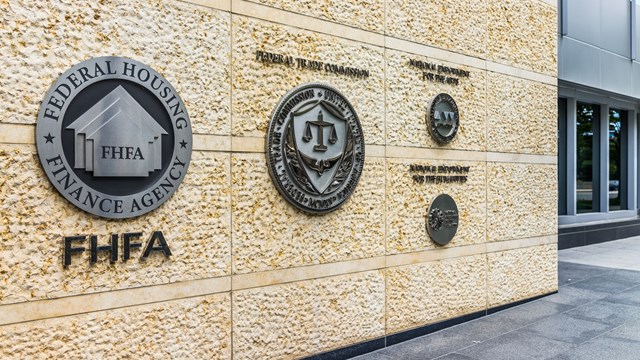While some community associations are lucky enough to have lawyers serve as members of their board, the majority of boards don’t have an in-house legal expert. They often reach out to their attorney to answer questions, vet documents, and send the occasional stern letter to a contractor or recalcitrant resident.
The problem is that sometimes, boards will reach out too often, calling attorneys about things they should already know. However, lawyers know boards aren't comprised of a bunch of psychics—there can only be one Miss Cleo, after all. So, to answer boards' frequently asked questions, and to save both boards' and attorneys' phone call time, we polled some area lawyers to come up with a list of the “Top 5 Things Attorneys Wish Boards Knew.”
Who You Gonna Call?
Often times, boards make the mistake of taking legal matters or other administrative tasks into their own hands in an effort to save funds. However, this is a misstep that can lead to financial woes much greater than the cost of professional counsel. Experts say they wish boards would not be penny-wise and pound-foolish and contact their attorneys for advice in handling problems before a manageable situation spirals out of control.
Case in point, says one attorney, “In a community association [we represent], there was water damage to a unit several years ago which resulted in mold. Even though the unit owners complained several times, nothing was done—the attorney wasn’t called, the insurance company wasn’t called. Eventually, the unit owner sued for his losses, including health issues.”
Because the board sat on the case for so long, the insurance company has now refused to pay for the condo association’s legal defense, resulting in a large unwanted exposure. “Had we been notified of this at the beginning, we probably would’ve recommended quick mold remediation and getting a release [from the unit owner, stating the problem was fixed] which would have put end to the claim,” the attorney says.
An association needs more than just the backing of an attorney. Experts suggest employing additional guidance such as a certified public accountant, insurance agent and engineer, if need be.
Jennifer Loheac, a shareholder attorney with Becker & Poliakoff in Morristown, New Jersey, emphasizes, “Rely on the association professionals! I urge boards in almost every action taken to insulate the board and the association from liability. The manager does not run the pool—the pool management company does. The board should not be defending choices in insurance. Let the insurance agent speak to his or her own recommendations and why. If there are delinquency actions or litigation or other questions of liability, that is why you have an attorney. When people question why there is not more money in reserves or how the budget was prepared, the board should have the management COO or accountant in attendance. As a board of volunteer community members, let the association professionals speak to the various professional actions or inactions,”
A Failure to Communicate
As any couples' counselor will say, strong and steady communication is essential to a successful relationship. This sentiment applies to the board/owners relationship as well.
“Many lawyers say that good boards 'communicate.' Yes, that’s true, but consistent communications is only part of the story,” Loheac says. “Yes, communications should be transparent and sincere, but they should also be controlled and concise. There’s a difference between transparent communications and communications that are too detailed, long-winded and tend to create more questions than answers for people who are not the decision-makers.”
“Sometimes,” Loheac continues, “boards, in a desire to 'be transparent,' share too much detail that is best left with the board members who know the whole story. If the goal is to inform and not to empower hundreds of homeowners to 'take a vote,' then it’s best to keep communications factual and concise.”
Fluid communication is also imperative for the attorney-client relationship. While your attorney is surely an expert on all things community association related, he or she is not omniscient. It's therefore vital for boards to keep counsel updated on any questions or concerns members might have, experts stress. As many community association boards know all too well, lack of knowledge in legal matters is something that can ultimately cost the association money. That's why it's so vital to have a cooperative relationship with your legal professionals—they're the main line of defense between your association and unwanted exposure and expense.
“You know what would be really helpful? If board members, whether they do it themselves or they do it through an association manager, convey their concerns and questions,” Anne Ward, senior counsel at Ehrlich, Petriello, Gudin & Plaza, LLP in Newark, New Jersey, says. “Sometimes, I find I get asked to do something by an association manager and the board will decide to take an action, and months later, I’ll get a weird email saying, ‘What’s the cost benefit analysis of that?’ which is something that they should have [asked] in the meantime.”
For his part, Ronald L. Perl, a partner with Hill Wallack LLP in Princeton, New Jersey, says, "We wish clients would call us before small problems become a crisis—or better yet, before issues even become problems. Preventative legal advice is so important.”
Be Transparent
Transparency has proven to be a hot-button issue these past few years, a fact that leads many board members to ask: What is the best way to practice transparency?
The first step to ensuring owners feel like they are clued in to the happenings of the association is to make meetings as open and accessible as possible. This includes not holding meetings unannounced to owners and making meeting minutes (from open meetings) and building documents (such as financial records, governing documents) available for review.
“Transparency is very important,” Wendell Smith, a partner with the law firm of Greenbaum Rowe Smith & Davis, LLP in Woodbridge, New Jersey, says. “Except for matters that involve personnel which are confidential, like litigation or contract negotiation, the unit owners should have a right to examine documents up to a point.” “There has to be a procedure,” he continues. “You just can’t come in and say, ‘I want to see all the documents in your files from the last ten years.’ What do you want? Justify the purpose of it. They should be made available. That’s the change that’s evolved over the years. It used to be ‘Keep it secret, it’s none of their business,’ but it doesn’t work that way.”
Associations should consider reserving a block of time before or after meetings to allow owners to raise issues and concerns and ask questions. Experts also recommend keeping owners updated about decisions made during board meetings and other things going on—anything from amendments recently passed to upcoming building construction— to newsletters and community bulletin boards.
Avoid Litigation at all Costs
The purpose of having proper legal representation is to ensure an association or corporation is properly maintained and protected so it will never have to go through the headaches (and legal fees) that typically result from litigation.
“Avoid litigation whenever possible because it is very expensive and you’re much better off going to mediation because you could be into the six figures very quickly with any type of serious litigation,” Smith warns. “People don’t understand that. Their emotions take over and sometimes there are dollar signs painted in their eyeballs.”
Ward agrees, saying, “Frequently, litigation takes on a life of its own, and many months down the road you’ll find the board goes, ‘Oh my God, I didn’t realize it costs this much money or ‘Oh my god, we’ve spent all this money and we haven’t gotten the results we wanted.’” “If somebody had asked the question, ‘What are the consequences?’ I could have explained the costs. Someone has to explain to them how lengthy litigation could be. There’s never a guarantee. That’s just the nature of it, you know,” she says.
Litigation should always be last resort. There are several different arbitration and mediation options to pursue before settling on the decision to pursue a case, as well as preventative steps to take. For example, before finalizing a construction deal, put a note in the contract stating that both parties will engage in non-minding mediation in case of a dispute.
Scott Piekarsky, an attorney with Piekarsky & Associates in Wyckoff, New Jersey, points out that under New Jersey state law, if an association is aware of a dispute—either between residents or between a resident and the association itself—then the association must offer what is called alternative dispute resolution (ADR) before the matter can move on to litigation. This could come in the form of a resident committee, a judiciary committee, a covenants committee or an outside mediator.
"In New Jersey and in other states, the Community Associations Institute trade organization has an ADR program," says Piekarsky. "Lawyers, managers, and others volunteer for the program so that associations can submit disputes to that. Basically, under Jersey law and the Condo Act, you really must get involved if a housing-related dispute is brought to your attention."
Keep the Peace
Boards are comprised of a diverse group of people, each with their own ideas on how things should be run, so of course, not every vote will be cast in everyone’s favor. Therefore, disagreements are bound to occur. However, Loheac warns against letting residents know that.
“Boards should always reveal a unified front to the community,” she says. “By all means, trustees should passionately disagree behind the scenes, but once a decision is made, it’s important for the board to speak with one voice. How can a community have confidence in a board that is, itself, divided?”
Just like how board member disagreements are to be expected, it’s a given that owners will not always agree with the board’s decisions—sometimes rightfully so. If a board makes a poor decision or a neglected oversight, they should be willing to apologize, Loheac says.
“Homeowners appreciate that boards can make mistakes. Becoming defensive over an obvious error in judgment or inaction causes far more problems and undermines the trust homeowners have with the board.”






Leave a Comment